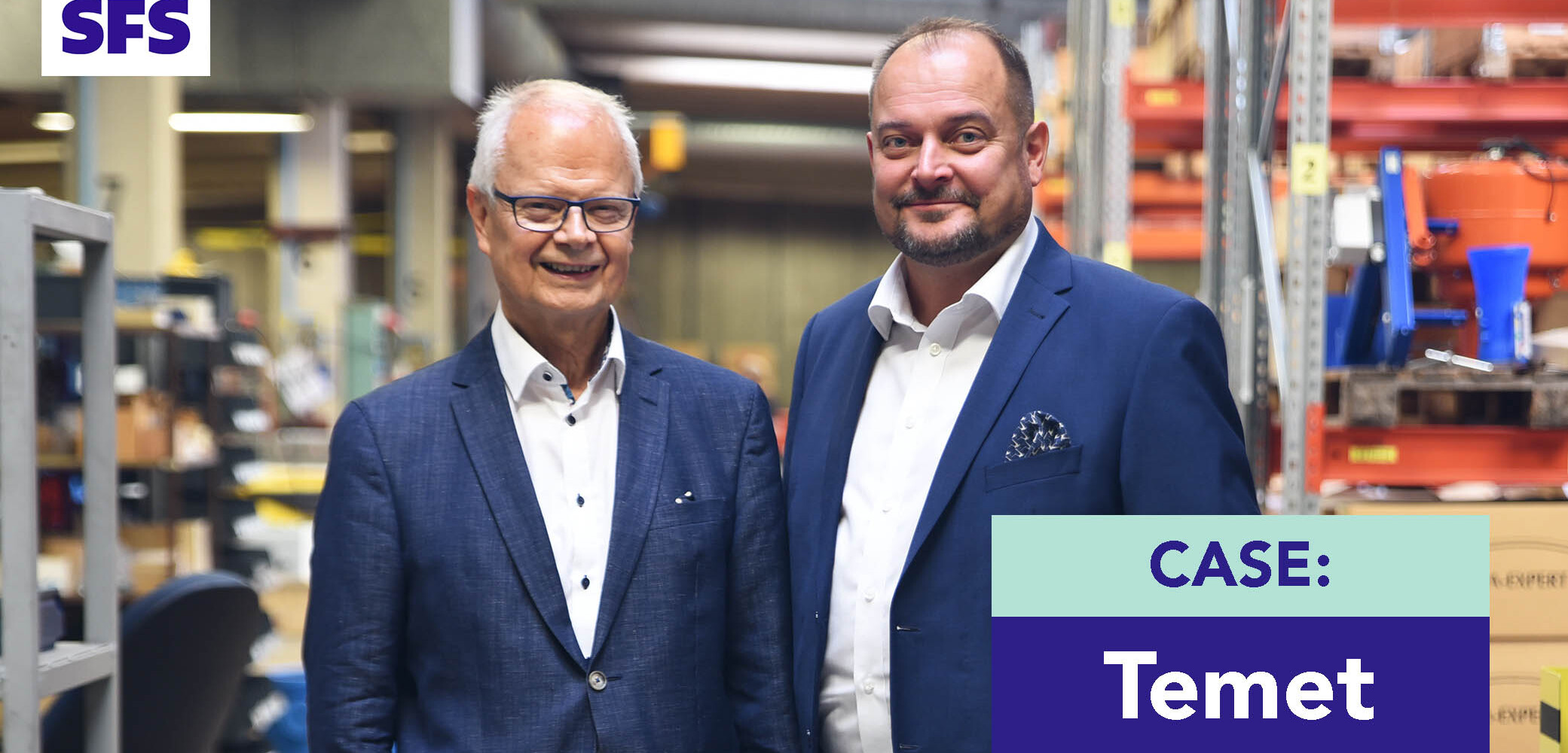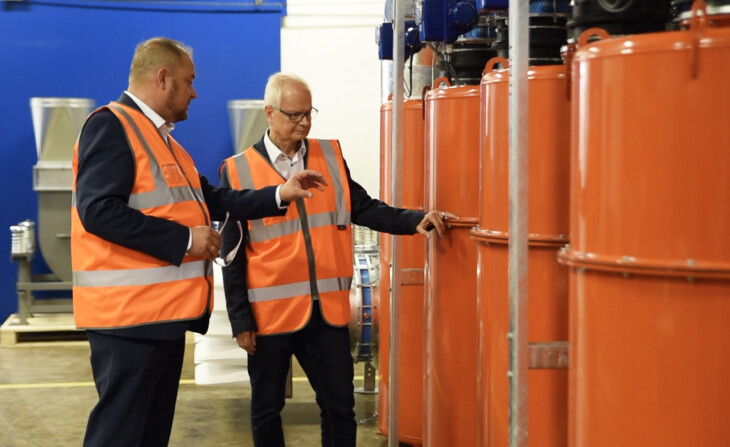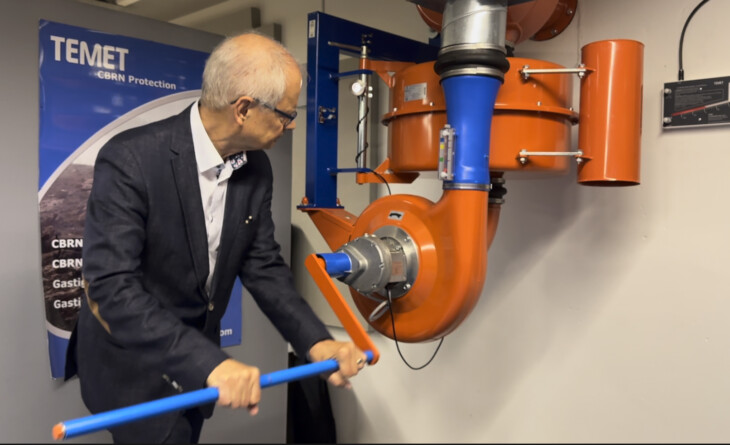Standardization levels the playground between a Finnish company and international competition
Temet, a Finnish manufacturer of civil protection solutions, was one of the writers of an international standard for hardened protective shelters. Published in 2024, the standard paves the way for companies to compete in the international market for shelters. The process demonstrates the enormous potential that SMEs have for influencing the contents of standards.

Temet, a Finnish manufacturer of civil protection solutions, was one of the writers of an international standard for hardened protective shelters. Published in 2024, the standard paves the way for companies to compete in the international market for shelters. The process demonstrates the enormous potential that SMEs have for influencing the contents of standards.
Situated in Herttoniemi, Helsinki, the factory of Temet International Oy Ltd is operating at full capacity. A large order for protective equipment is almost completed, and the staff is busy adding the final touches.
Hopefully, they are kept busy in the future, too – especially with the international standard ISO 22359 having been published in 2024. Temet took part in its development from the very beginning. It was on the initiative of Temet that ISO set up a Working Group on hardened protective shelters in the autumn of 2021.
“We received a lot of publicity already at the preparatory stage. Hoping to improve the quality of shelters world-wide, Temet is behind the idea of the new standard. We have gained many new international contacts that are already proving useful for our business,” say Temet’s CEO Juha Simola and advisor Jyrki Ronkainen.

Lack of shared principles has made competition more difficult
Globally, Temet is the leading developer, manufacturer and supplier of blast protection, CBRN protection and ventilation solutions. The company celebrated its 70th anniversary in 2023.
The company’s expertise, experience, products and services are related to civil protection, military and crisis management needs, and various industrial applications. The core competence of Temet is in hardened protective shelters.
“We have developed a highly cost-effective way of building shelters that are very safe to their users. Our strength lies in a data model based on long traditions. Unlike our competition, we control the whole chain and not just parts of it,” says Juha Simola.
In Finland, the planning, construction, use and maintenance of civil defence shelters is governed by law. When it comes to the international market, not all countries have similar regulation. Therefore, the quality of shelter planning and construction varies around the world. Weaknesses are sometimes found in planning, implementation, use and maintenance. It makes competition more difficult especially if advantage is sought with top quality.
“When a shelter is poorly planned, it is difficult to offer high-quality implementation. We have found that there are many shortcomings in the construction, use and maintenance of shelters that could be remedied by common operating principles,” says Jyrki Ronkainen.
High-quality protective shelters instead of root cellars
The standard on hardener protective shelters brings companies to the same level in the international market. The standard harmonises practices globally and gives guidance on shelter design, construction, usage and maintenance.
If a client in need of a shelter requires that the companies participating in the tender conform with the standard, it is for everyone’s benefit: The shelter will be up to par, and the client can easily compare the suppliers and service providers between each other, as the shelters meet the same criteria.
“We hope that the standard will give new clients a better understanding of what to look for. The goal is that the client will no longer compare our shelters with a root cellar, but with shelters made according to agreed-upon principles,” says Simola.

A fast and surprisingly smooth process
Standards are market-driven, meaning that they originate from the needs identified by organisations operating in the same field of industry. Temet’s proposal to develop a standard concerning hardened protective shelters led to action in earnest in the autumn of 2021, when the international working group WG10 Preparedness was established to work on the standard. The group includes companies and other organisations operating in the field as well as experts, authorities, universities and other research institutes from a total of 11 countries.
The process was expected to last a total of 36 months, but at least the preparatory stage has progressed more rapidly than expected.
“Cooperation has been excellent, and mutual understanding has been achieved quite easily. The working group has been chaired by Pertti Woitsch from Finland, which has been beneficial. In addition, the Finnish members of the working group are professionals whose expertise has been found indisputable.
He has worked closely with Woitsch when writing drafts. The working group has met 14 times in total. The meetings, with the exception of two, have been arranged remotely.
“The biggest surprise has been the fluency of cooperation within the working group and the fact that no country or organisation has tried to force their views to support their own interests.”
The fast-paced process has taught that an international standard can also be started on the initiatives of Finnish SMEs, as long as the topic is interesting enough.
“You don’t need a large organisation to get involved, and a single organisation can have an impact,” Simola and Ronkainen say with satisfaction.